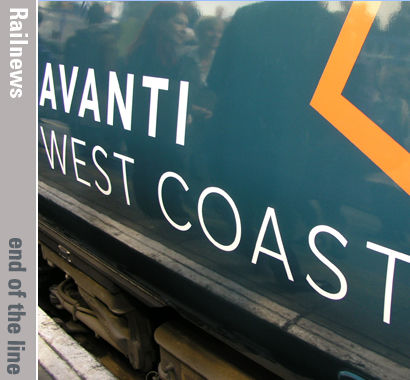THE former Avanti West Coast and South Western Railway franchises will become management contracts when the present Emergency Recovery Measures Agreements come to an end. The move marks a further step towards abolishing the old-style franchises.
FirstGroup, which is the majority shareholder in both contracts, said the changeover would come for South Western Railway at the end of March 2021, and for Avanti West Coast at the end of March 2022.
The contracts ceased to be conventional rail franchises in March this year, when all franchise-holders in England were offered the first phase of Emergency Measures Agreements, under which commercial risk was assumed by the Department for Transport. These EMAs were replaced by the present ERMAs in September, when the performance requirements were tightened and the fee payable to the operators reduced by 25 per cent.
The ERMAs required the operators and the DfT to agree on whether any payment was required to terminate the old franchise agreements, and if so how much, based on trading conditions before the pandemic.
First said it has agreed with the DfT that no payment is due for Avanti, which started in December 2019 and ‘performed well’ until the pandemic.
A payment of £33.2 million will be due for South Western Railway. This represents First’s share of parent company support and additional funding commitments under the franchise agreement.
The new management contracts, which exclude nearly all commercial risk but transfer control to the DfT, will run until at least 1 April 2023 for South Western Railway and 1 April 2026 on Avanti West Coast. Extensions are possible in each case of up to two years.
First added that discussions to end its TransPennine Express franchise in a similar way are due to be completed by the end of January, while the Great Western Railway ERMA had already been extended until June 2021.
First’s chief executive Matthew Gregory said: ‘We welcome this agreement, which marks a further evolution of the contractual framework for our SWR and Avanti train operating companies, both in the context of providing resilient services throughout the coronavirus pandemic and also a more sustainable long-term approach.
‘These new directly awarded management contracts will focus on passengers and operational performance, with a more appropriate balance of risk and reward. We look forward to working constructively with the DfT to make this a reality, and to use our expertise and understanding of the needs of our customers to deliver improvements that we know passengers want.’


